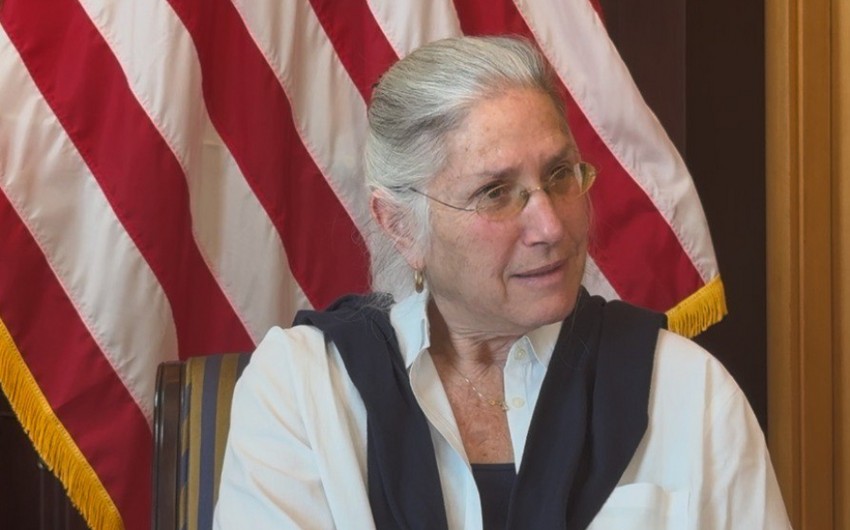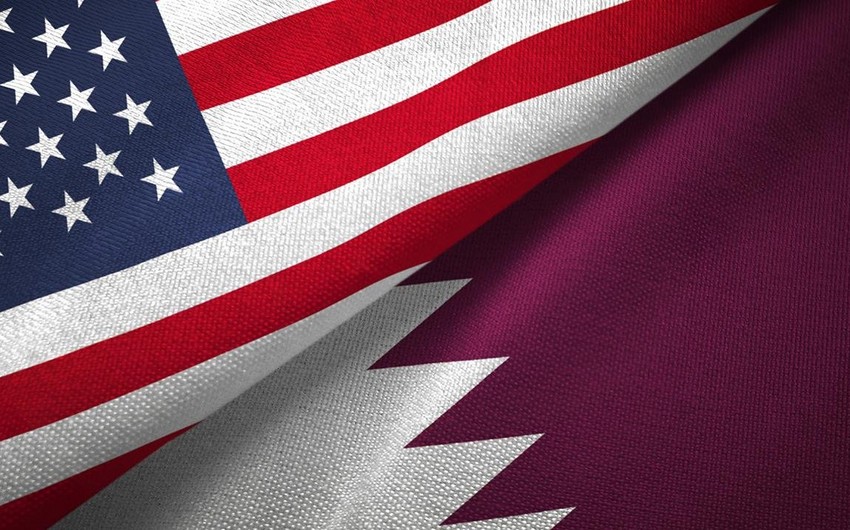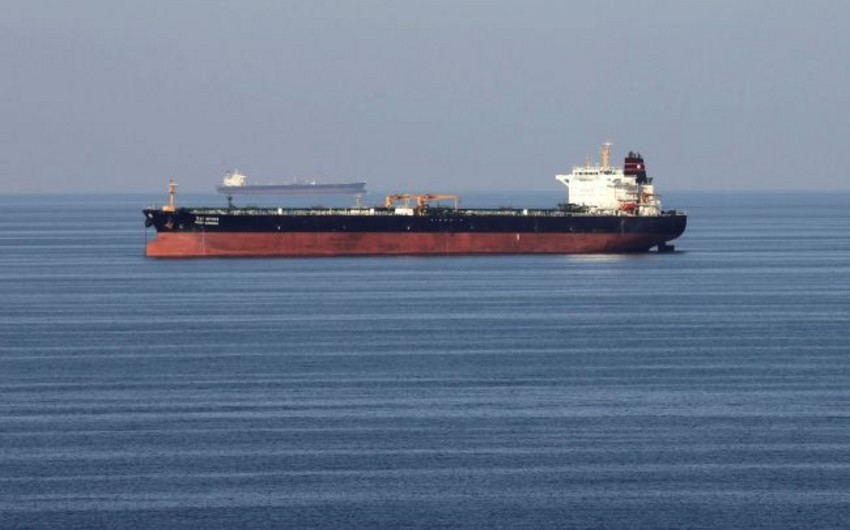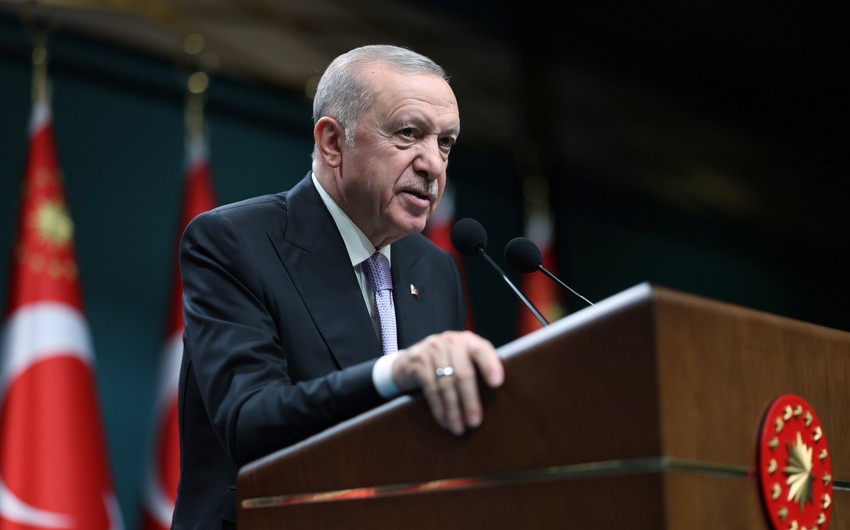US Deputy Special Presidential Envoy for Climate Sue Biniaz gave an interview to the AZERTAC US-based bureau.
Ednews presents the interview:
- The 29th session of the Conference of the Parties (COP29) will be held in Azerbaijan in November. The decision to hold it in Azerbaijan was made last year at the plenary meeting of COP28 held in Dubai. How would you characterize this opportunity? What are your expectations for COP29?
- Well, we were very supportive of the selection of Azerbaijan to host COP29. And we are looking forward to working with them. And I've already started working with the team. In terms of the expectations, I would say probably four, you know, maybe I could just kind of list them. The first is that the Dubai outcome from the last COP was very strong. It was the first so-called Global Stocktake, under the Paris Agreement, and it came out with what we think of as kind of a roadmap for keeping this 1.5-degree limit on warming within reach and promoting resilience and adaptation to climate impacts. So one of the things that will be really important for COP29 is to kind of keep up the momentum in terms of implementing that decision because we don't want that strong Dubai decision to just kind of slide off the table. And that could take the form of some agreed decisions of the COP and also maybe some side initiatives and events. So that would be one. The second is that the main issue that is supposed to be or that is mandated for the decision a COP29 involves climate finance. So far, there has been a so-called $100 billion mobilization goal where the developed countries agreed to support the developing countries by mobilizing that amount of money per year starting in 2020. That goal runs out after 2025. So the agreement was by 2024, meaning this year was to figure out what happens after 2025. So that is kind of the main issue that must be dealt with at the COP the new, the new goal, you'll often hear that referred to as the new collective quantified goal, or the NCQG. The third issue is NDCs. There is a lot of, you know, “alphabet soup," as we call it. So the NDCs are the backbone of the Paris Agreement. They're the nationally determined contributions where each party decides on what its commitment is going to be with respect to reducing its greenhouse gas emissions. And the next set of NDCs is due in February of next year. So a little bit less than a year from now and shortly after Azerbaijan`s COP. So, one thing that will be important in Baku is to kind of lay the foundation for a strong set of ambitious NDCs and Azerbaijan has already announced that it will be putting in a strong NDC one that is aligned with this 1.5-degree temperature limit. So we think that sets up Azerbaijan as the host country, as you know a good role model for other countries. The last, fourth expectation is, and again, this is alphabet soup because it's BTRs, or biennial transparency reports. Now what that means in plain English is that under the Paris Agreement, the parties all agreed to a very strong transparency system under which they would report on their emissions of greenhouse gases. And basically, how they're doing on implementing these NDCs. Their emissions commitments. And the very first reports are due December 31 of this year. So Azerbaijan has been very focused on trying to make sure that as many countries as possible meet the deadline, at the end of this year. they're having a workshop in Baku, I think in mid-May. I think we are also going to try to do something together with Azerbaijan for the continent of Africa, where there's, you know, a lot of help is needed with respect to capacity building. But anyway, that's the fourth, I guess, the expectation that I would have is that the COP would again, provide the momentum for many, many parties to meet the deadline.
- This February, President Aliyev met with President Biden’s Special Presidential Envoy for Climate, John Kerry, in Munich. Assistant Secretary for Energy Resources Geoffrey Pyatt stated that the United States strongly supports Azerbaijan's chairmanship of COP29. COP29 was also touched upon on April 3 when Secretary Blinken called President Aliyev. How would you characterize the level of this cooperation?
- Well, I think it's been very positive. First of all, we welcomed the presidency, that was announced for COP29. And kind of at every level, we've been very engaged with the team, which is a very impressive team that you have. We went to Baku a few months ago, I guess, in February, and had a bunch of meetings with various ministries, including the COP29 President himself, to discuss both the issues that are going to be negotiated at the COP, and then the sort of side initiatives and events that will help bolster the cup outcome. So I would say, and in fact, the Azerbaijani team was here in Washington last week on the occasion of the meetings of the World Bank, and so we were able to meet with the team, once again, and we will see them again later this week in Berlin, so many, many interactions at all kinds of levels, both with the COP president and with the chief negotiator and his team.
- Within the framework of the COP, Azerbaijan's chairmanship within the framework of the COP is devoted to a crucial topic - climate finance. This topic is one of the most important issues on the agenda of the COP. What are the main problems facing climate finance? How can COP29 and Azerbaijan contribute to solving this issue?
- Well, you're right, that climate finance is sort of the core issue this year, obviously, it's not the only issue. But one of the main issues, when you look at the Paris Agreement, and you look at the goals of the Paris Agreement, which are, you know, limit temperature rise to a kind of safe temperature and to promote adaptation and resilience to climate impacts, that those are very ambitious goals. So obviously, they will be expensive to address. So far, the discussions internationally have been very focused on this 100 billion dollar goal. And that's important, of course, and we're going to agree on some kind of successor to that goal. But we also have to look at the much bigger picture because 100 billion is not going to solve the climate crisis. So we need to be looking at all sources of funding, whether that's the private sector, whether it's domestic investments within countries, whether it's the multilateral development bank whether it's, you know, the continuation of donor countries and their support. So I think we look forward to this year is not just the kind of narrow articulation of a new support goal, but the much broader, you know, what sometimes people refer to as the trillions, not just the billions.
- In general, how does the United States evaluate the steps taken by Azerbaijan in the transition to a green economy, and are there any cooperation plans between the two countries in this regard? What kind of dialogue exists between the parties towards the reconciliation of climate goals?
- We are aware of some of the plans that Azerbaijan has with respect to the green energy transition, some of which involve offshore wind and the Caspian Sea. And we're very interested in talking more to Azerbaijani officials about their plans and possibilities of cooperation between the US and US companies and Azerbaijan, and not just on offshore wind in the Caspian, but more generally on wind, energy, and solar energy. We think there are lots of opportunities and potential for renewable energy. So it's an area. It's an exciting area for the US, and it's one that we really want to delve into on the road to COP29.
- There is also a "green energy corridor" project covering Azerbaijan, Georgia, Romania, and Hungary based on the wind potential of the Caspian Sea. What are the opportunities for cooperation with the United States on this energy corridor?
- I would say we're excited and interested to learn more about this project, which we've definitely heard some kind of enticing bits about, and want to learn more about, and there could well be interest in some kind of cooperation.
- Azerbaijan hosts the Southern Gas Corridor Consultative Council meeting every year. The Green Energy Consultative Council meeting of ministers has been held in parallel for two years now in Baku. How do you see the role of holding this meeting in promoting the transition to green energy globally?
- We've heard about it. I think it's between the EU and Azerbaijan. And we've sort of kept up with developments there. And we're happy to hear about them. We think it's a very timely, kind of meeting and announcement given? Well, first of all, just the Dubai agreement to transition away from fossil fuels, but also given that the next set of NDCs is on the horizon, we think, you know, any form of cooperation that leads to, you know, in the direction of the sort of renewable energy is one that we're pleased to hear about.
- As I know, you are ethnically connected to the region. I would like you to give more details about this.
- I was so thrilled to get to go to Azerbaijan. Finally, after my entire life, because my father is from Iran. And I always knew that his mother, my grandmother, that her maiden name was Nakhchivan, and so, but I didn't realize until later in life, that that was a piece of an autonomous republic within Azerbaijan. So when I discovered that when I was probably a teenager, I always had in my mind that I needed to get to Azerbaijan at some point and also to Nakhchivan in particular. When I was in Baku, I did get to go to a restaurant called Nakhchivan to have some of that food, but I'm definitely planning after the COP to make a trip to Nakhchivan just, you know, to connect with that side of my family.
- Have you done any research on this so far?
- Yeah, absolutely. I've already been looking into it. I know that my grandmother's family was full of generals, one of them, General Nakhchivan, was the Minister of War in Iran during the Second World War. And what I'm not exactly sure about is where they were all born? I think they might have been born in Tabriz, but I'm not sure.










